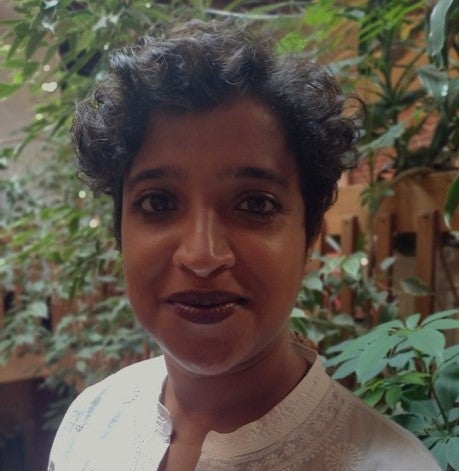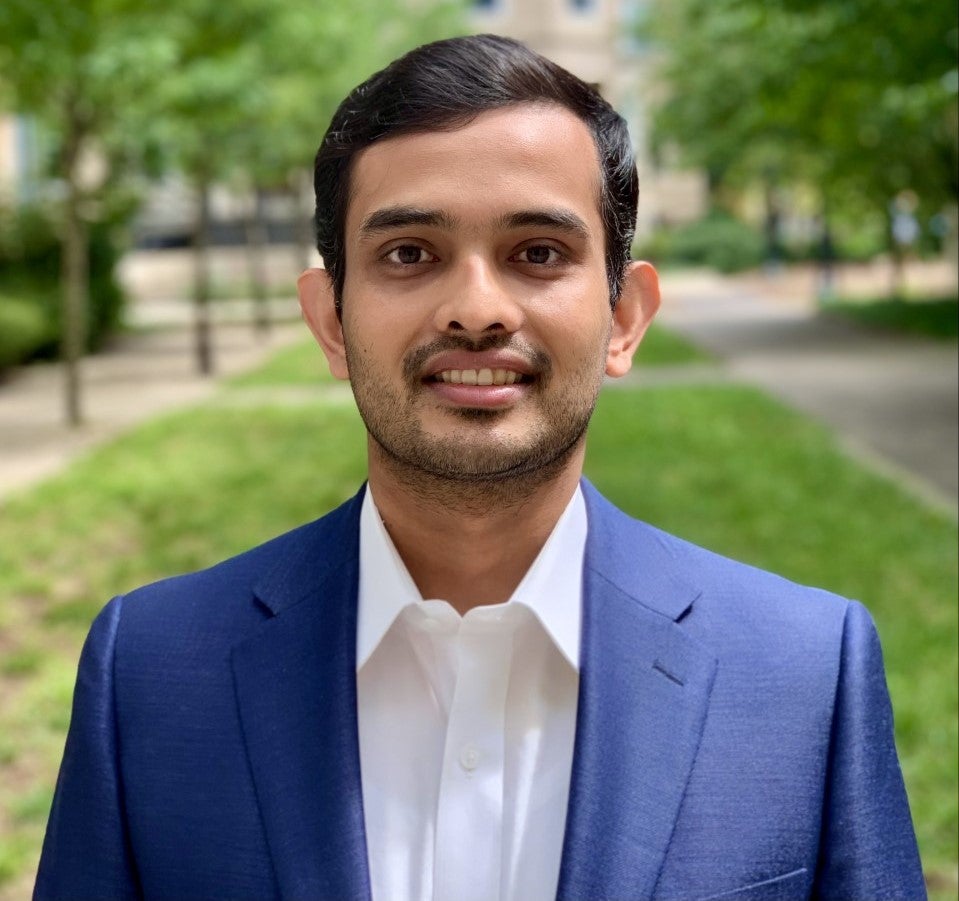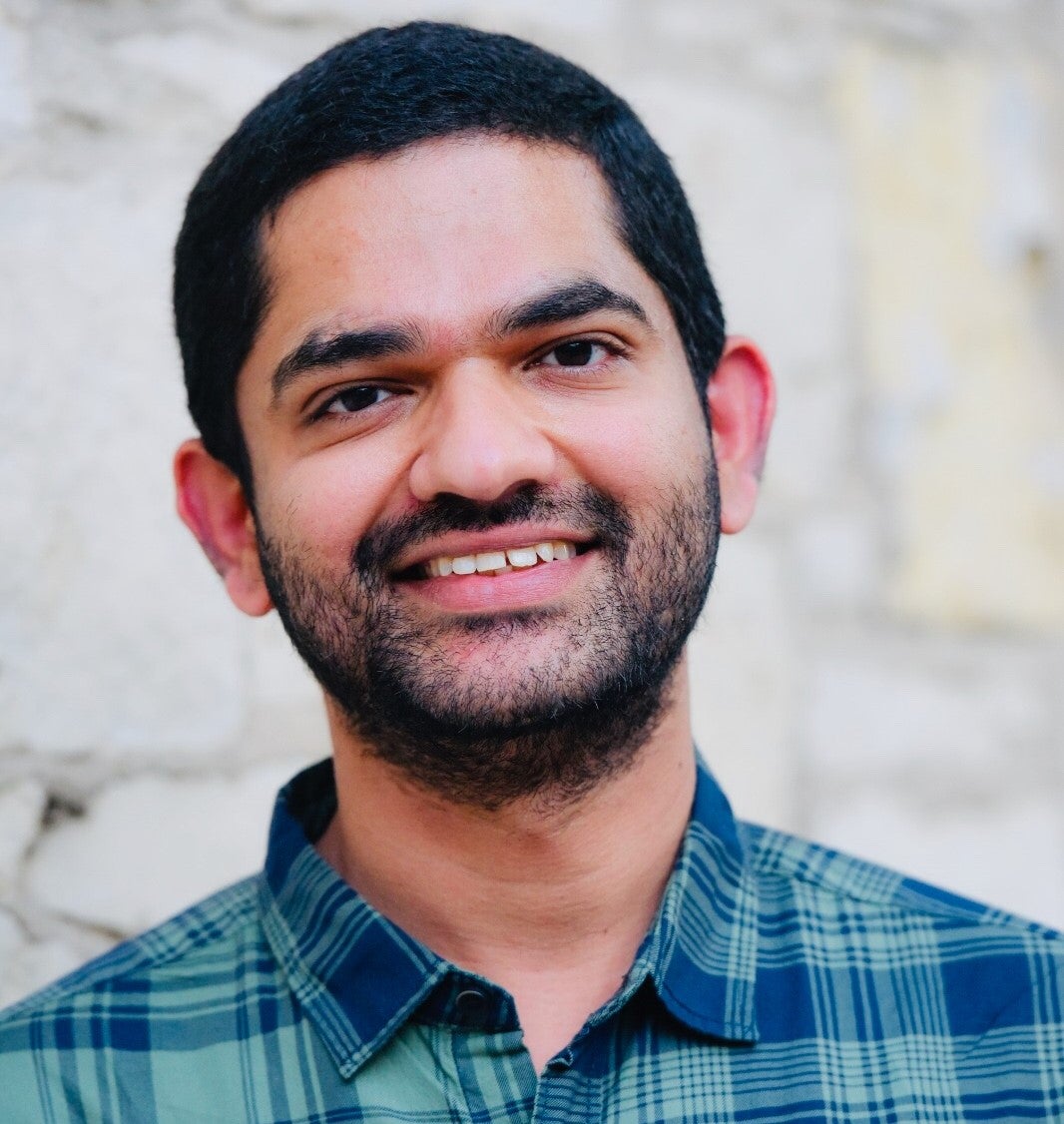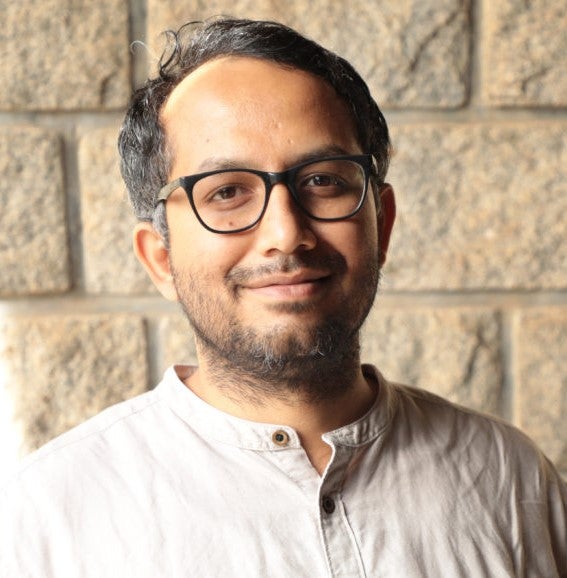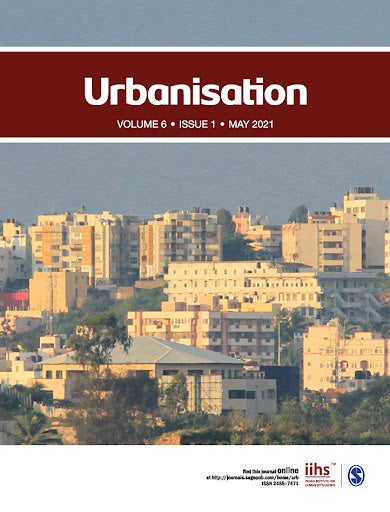CASI 2024-25 Visiting Scholars & Fellows
 CASI is fortunate to have these 33 distinguished researchers, in residence and non-resident, serve as Visiting Scholars & Senior Fellows, Postdocs, and Sobti Family Doctoral Fellows for the academic year. In keeping with CASI’s commitment to supporting research on contemporary India across the social sciences, these scholars hail from a variety of disciplines, including anthropology, economics, history, and political science. Their work showcases research excellence across a wide range of methodological orientations and subject areas. From the workings of agricultural markets and supply chains to the impact of female labor force participation, from the impact of air pollution and coastal flooding to pre-independence debates on federalism, these innovative scholars will continue to shape our understanding of many of India’s most pressing concerns. We are delighted to have them enrich our Center!
CASI is fortunate to have these 33 distinguished researchers, in residence and non-resident, serve as Visiting Scholars & Senior Fellows, Postdocs, and Sobti Family Doctoral Fellows for the academic year. In keeping with CASI’s commitment to supporting research on contemporary India across the social sciences, these scholars hail from a variety of disciplines, including anthropology, economics, history, and political science. Their work showcases research excellence across a wide range of methodological orientations and subject areas. From the workings of agricultural markets and supply chains to the impact of female labor force participation, from the impact of air pollution and coastal flooding to pre-independence debates on federalism, these innovative scholars will continue to shape our understanding of many of India’s most pressing concerns. We are delighted to have them enrich our Center!
Tariq Thachil
Director, CASI
Professor of Political Science
Madan Lal Sobti Professor for the Study of Contemporary India
University of Pennsylvania
 What the Doctors’ Protests in India are Missing
What the Doctors’ Protests in India are Missing
Kiran Kumbhar
STATNews, September 16, 2024
Demonstrations have reframed a terrible case of violence against women into something else entirely.
Flowers of Deception: The Expert’s Nostalgia for a Future’s Past and its Occlusion of Agrarian Labor
Amrita A. Kurian
Cultural Anthropology, September 2024
Using the lens of affect, this article argues that understanding the sensibilities and allegiances of postcolonial experts is vital to determining who constitutes the expert’s “public” and, thus, who benefits from state interventions and who doesn’t.
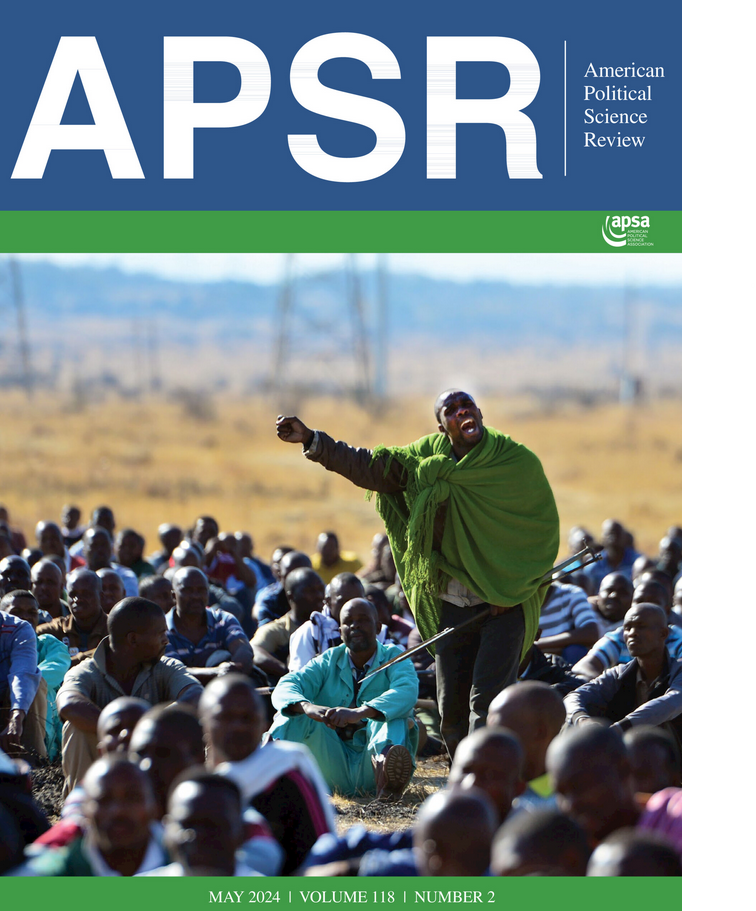 Who Knows How to Govern? Procedural Knowledge in India’s Small-Town Councils
Who Knows How to Govern? Procedural Knowledge in India’s Small-Town Councils
Tariq Thachil, Adam Auerbach, and Shikhar Singh
American Political Science Review, July 31, 2024
Governments across the Global South have decentralized a degree of power to municipal authorities. Are local officials sufficiently knowledgeable about how to execute their expanded portfolio of responsibilities?
 ‘Mutating Records’—Bureaucratic Knowledge in the Realm of Splintering Digitality
‘Mutating Records’—Bureaucratic Knowledge in the Realm of Splintering Digitality
Nafis Aziz Hasan
Contributions to Indian Sociology, July 25, 2024
Citizen Labor: Correcting Data and Creating Value in an Indian Land Records Database
Nafis Aziz Hasan
American Ethnologist, June 18, 2024
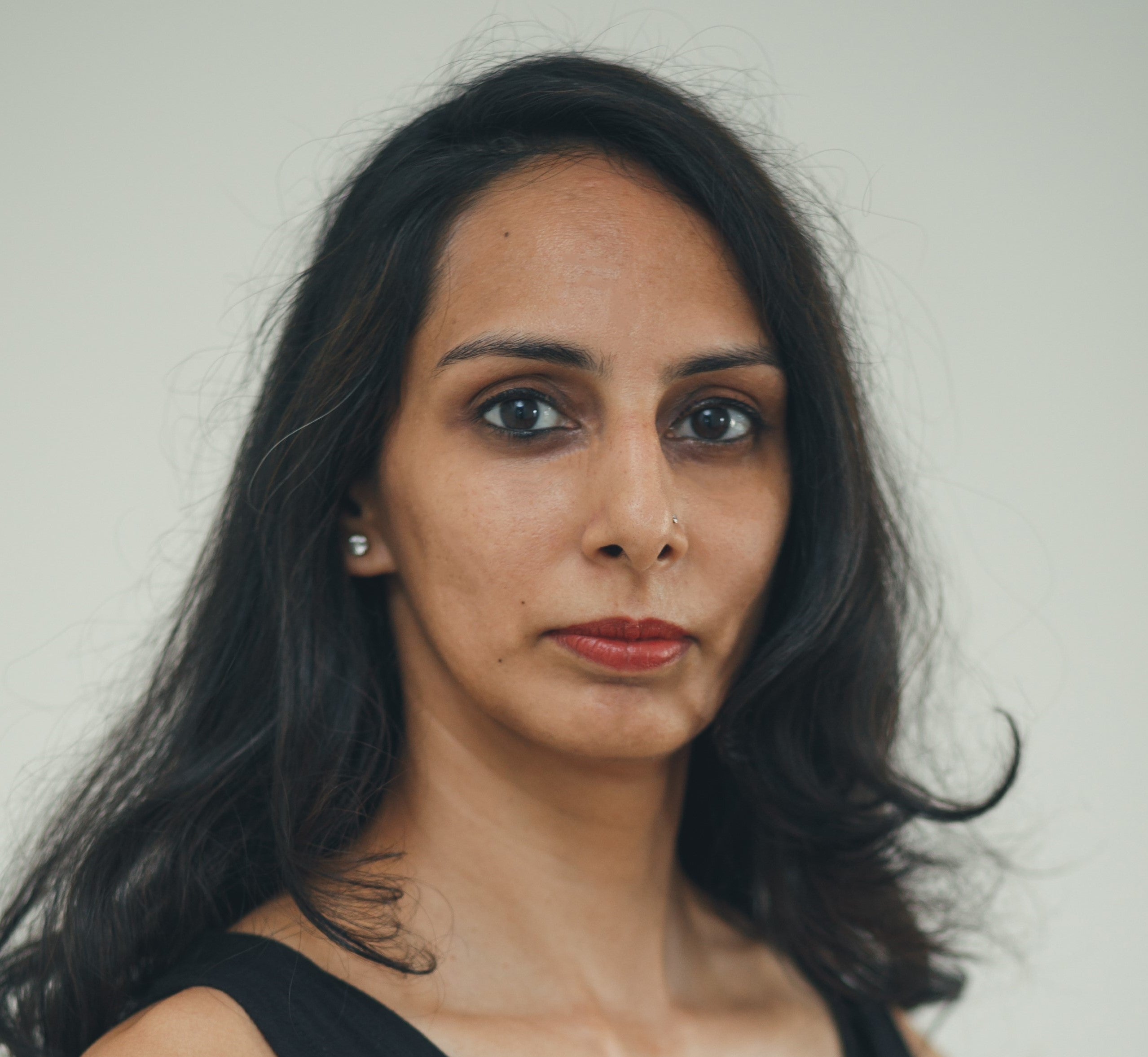 Data for India
Data for India
Rukmini S. has launched Data for India, a "public platform that seeks to expand access to Indian data for everyone, and deepen the understanding of the country that can come from this data."
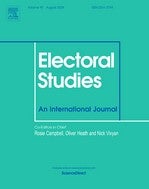 Do Local Leaders Prioritize the Poor: Identifying the Distributive Preferences
Do Local Leaders Prioritize the Poor: Identifying the Distributive Preferences
of Village Politicians in India
Mark Schneider & Neelanjan Sircar
Electoral Studies, April 2024
Mark Schneider and Neelanjan Sircar investigate the distributive preferences of elected leaders in local democracies, who are tasked with "everyday assistance" and personally know their constituents.
 In India, Foreign Policy Is on the 2024 Ballot
In India, Foreign Policy Is on the 2024 Ballot
Carnegie Endowment for International Peace, April 12, 2024
A Guide to India’s 2024 Elections
Carnegie Endowment for International Peace, March 2024
Milan Vaishnav & Caroline Mallory
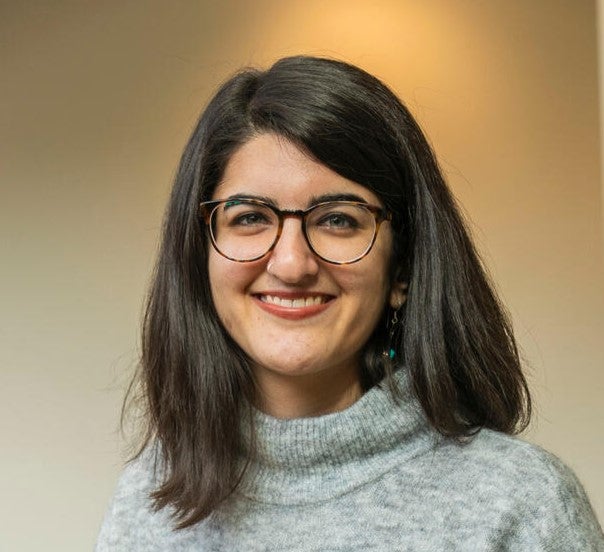 Congratulations to 2024 Dean's Scholar Rashi Sabherwal (Sobti Family Fellow, 2023-24; Doctoral Candidate, Comparative Politics)—nominated for her outstanding academic performance!
Congratulations to 2024 Dean's Scholar Rashi Sabherwal (Sobti Family Fellow, 2023-24; Doctoral Candidate, Comparative Politics)—nominated for her outstanding academic performance!
When Does Welfare Win Votes in India?
Shikhar Singh
Carnegie Endowment for International Peace, January 25, 2024
As India’s political parties scramble to build their platforms for the 2024 general elections, new research illuminates how and when welfare schemes win over Indian voters.
Sarath Pillai Wins 2022 Sardar Patel Award
CASI Postdoctoral Research Fellow Sarah Pillai is the winner of the 2022 Sardar Patel Award for his dissertation, "Federal Futures: Imagining Federation, Constitution and World in Late Colonial India," completed at the University of Chicago. The award honors "the best doctoral dissertation on any aspect of modern India—social sciences, humanities, education and fine arts—in any U.S. University or academic institution awarding the Ph.D."
He also spoke about the "Influence of Nineteenth Century German Thought on Early Twentieth Century Indian Constitutionalists" on the October 19, 2023 Ideas of India podcast, hosted by Shruti Rajagopalan at the Mercatus Center, George Mason University.
New India Foundation Kamaladevi Chattopadhyay Book Prize 2022
Whole Numbers & Half Truths: What Data Can and Cannot Tell Us About Modern India (Westland, 2021) by Rukmini S. (CASI Fall 2022 Visiting Fellow & Independent Data Journalist) has been longlisted by the New India Foundation as part of its 2022 Kamaladevi Chattopadhyay NIF Book Prize.
Democracy and Anti-Corruption Protests in India
Grand Tamasha podcast with Milan Vaishnav, in conversation with Bilal Baloch
April 5, 2022
Bilal Baloch, author of When Ideas Matter: Democracy and Corruption in India (Cambridge University Press, 2021), discusses the role ideas play in shaping government policy during acute crises, the relevance of ideas in interpreting India’s response to the Russian invasion of Ukraine, and the factional divisions that exist within the Modi government.
The Meaning of Net Zero and How to Get it Right
Radhika Khosla, et al
Nature Climate Change, January 2022
The concept of net-zero carbon emissions has emerged from physical climate science. However, it is operationalized through social, political and economic systems. [The authors] identify seven attributes of net zero, which are important to make it a successful framework for climate action. The seven attributes highlight the urgency of emission reductions, which need to be front-loaded, and of coverage of all emission sources, including currently difficult ones. The attributes emphasize the need for social and environmental integrity. This means carbon dioxide removals should be used cautiously and the use of carbon offsets should be regulated effectively. Net zero must be aligned with broader sustainable development objectives, which implies an equitable net-zero transition, socio-ecological sustainability and the pursuit of broad economic opportunities.
Bureaucratic Mediations for Biometric Governance in India’s Northeast—Aadhaar in Tripura
Nafis Aziz Hasan
Journal of South Asian Studies, March 6, 2022
Residential Segregation and Public Services in Urban India
Naveen Bharathi, Deepak Malghan, Sumit Mishra, and Andaleeb Rahman
Urban Studies, February 8, 2022
"Gender, Social Change and Urbanisation in Four North Indian Clusters"
Devesh Kapur, Neelanjan Sircar, and Milan Vaishnav
Urbanisation, Volume 6, October 26, 2021
Drawing on their team's survey of 15,000 Indian households, the authors have also organized an Ideas For India e-symposium on "Urbanisation, Gender, and Social Change in North India,” appearing from December 6-10, 2021. The study was funded by the Ford Foundation.
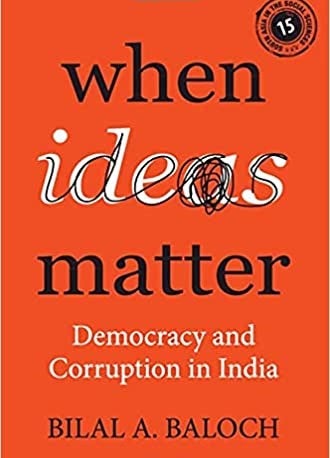 When Ideas Matter: Democracy and Corruption in India
When Ideas Matter: Democracy and Corruption in India
(Cambridge University Press, 2021)
Bilal Baloch
How do ideas shape government decision-making? Comparativist scholarship conventionally gives unbridled primacy to external, material interests-chiefly votes and rents-as proximately shaping political behavior. These logics tend to explicate elite decision-making around elections and pork barrel politics but fall short in explaining political conduct during credibility crises, such as democratic governments facing anti-corruption movements. In these instances, Baloch shows, elite ideas, for example concepts of the nation or technical diagnoses of socioeconomic development, dominate policymaking. Scholars leverage these arguments in the fields of international relations, American politics, and the political economy of development. But an account of ideas activating or constraining executive action in developing democracies, where material pressures are high, is found wanting. Resting on fresh archival research and over 120 original elite interviews, When Ideas Matter traces where ideas come from, how they are chosen, and when they are most salient for explaining political behavior in India and similar contexts including Brazil, Turkey, Indonesia, and beyond.
Colossus: The Anatomy of India
(Cambridge University Press, 2021)
Sanjoy Chakravorty & Neelanjan Sircar (Eds.)
The National Capital Region of Delhi is a diverse and unequal space. Its more than 30 million people are sharply differentiated by economic class, religion and caste, education, language, and migration status. Its 45,000 square kilometres is a tapestry of spaces—ghettoes, slums, enclaves, institutional areas, planned and unplanned and authorized and unauthorized colonies, forests and agricultural fields. In some ways it is a dynamic society aspiring to global city grandeur; in other ways it is a bastion of tradition, sectarianism and hierarchy. Colossus details these realities and paradoxes under three themes: social change, community and state, and inequality. From the material condition of the metropolis—its housing, services, crime and pollution—to its social organization—of who marries whom, who eats with whom, and who votes for whom—this book unpacks the complex reality of a metropolitan region that is emblematic of India's aspirations and contradictions. Colossus: The Anatomy of Delhi is a publication of papers originally presented at the November 2017 CASI 25th anniversary workshop on Urbanization, co-organized by former CASI Director Devesh Kapur along with the book's editors, Sanjoy Chakravorty and Neelanjan Sircar.
Eastward Ho? India's Relations with the Indo-Pacific
(Orient BlackSwan, 2021)
Eswaran Sridharan (Ed.)
Eastward Ho? analyses India’s relationships with the countries lying to its east. It explores India’s "Look East Policy" launched in the early 1990s, later renamed "Act East" in 2014. Against the backdrop of deepening intra-Asian economic integration, combined with security tensions and rivalries, both related to the economic and strategic rise of China, this volume asks: What are India’s relationships like with countries to its east, and what are its challenges, possible roles and options?
 Overcoming the Political Exclusion of Migrants: Theory and Experimental Evidence from India
Overcoming the Political Exclusion of Migrants: Theory and Experimental Evidence from India
Gareth Nellis & Nikhar Gaikwad
American Political Science Review, Cambridge University Press, June 8, 2021
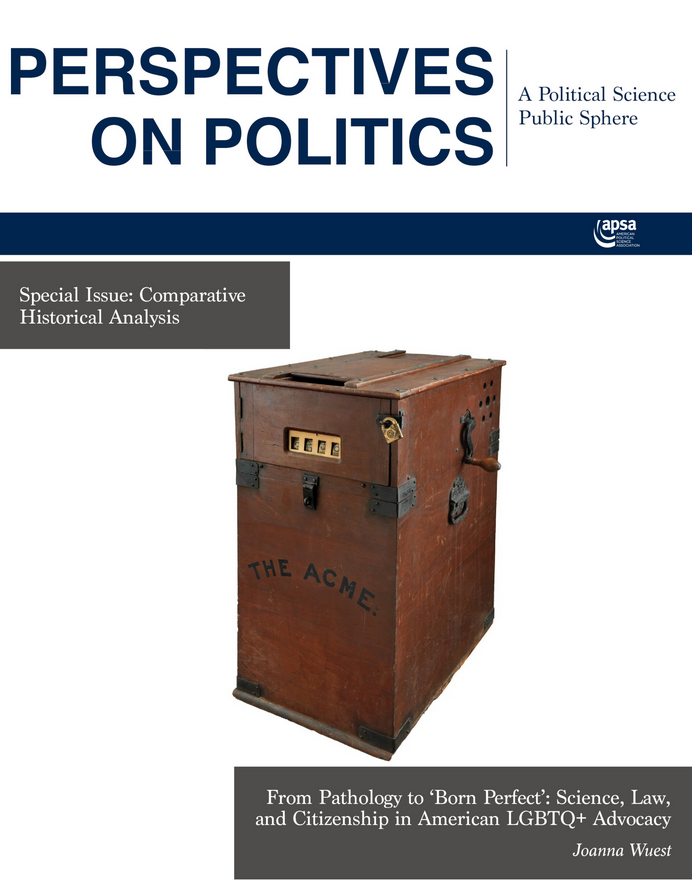 Rethinking the Study of Electoral Politics in the Developing World: Reflections on the Indian Case
Rethinking the Study of Electoral Politics in the Developing World: Reflections on the Indian Case
Adam Auerbach, Gareth Nellis, Neelanjan Sircar, Tariq Thachil, Milan Vaishnav, Jennifer Bussell, Simon Chauchard, Francesca R. Jensenius, Mark Schneider, Pavithra Suryanarayan, Rahul Verma, and Adam Ziegfeld
Perspectives on Politics, March 2021
 The Three Faces of the Indian State
The Three Faces of the Indian State
Milan Vaishnav & Madhav Khosla
Journal of Democracy (Johns Hopkins University Press), January 2021
 A New Party System or a New Political System?
A New Party System or a New Political System?
Gilles Verniers & Christophe Jaffrelot, Contemporary South Asia, June 19, 2020
The Reconfiguration of India’s Political Elite: Profiling the 17th Lok Sabha
Gilles Verniers & Christophe Jaffrelot, Contemporary South Asia, May 18, 2020
The BJP’s 2019 Election Campaign: Not Business as Usual
Gilles Verniers & Christophe Jaffrelot, Contemporary South Asia, May 18, 2020
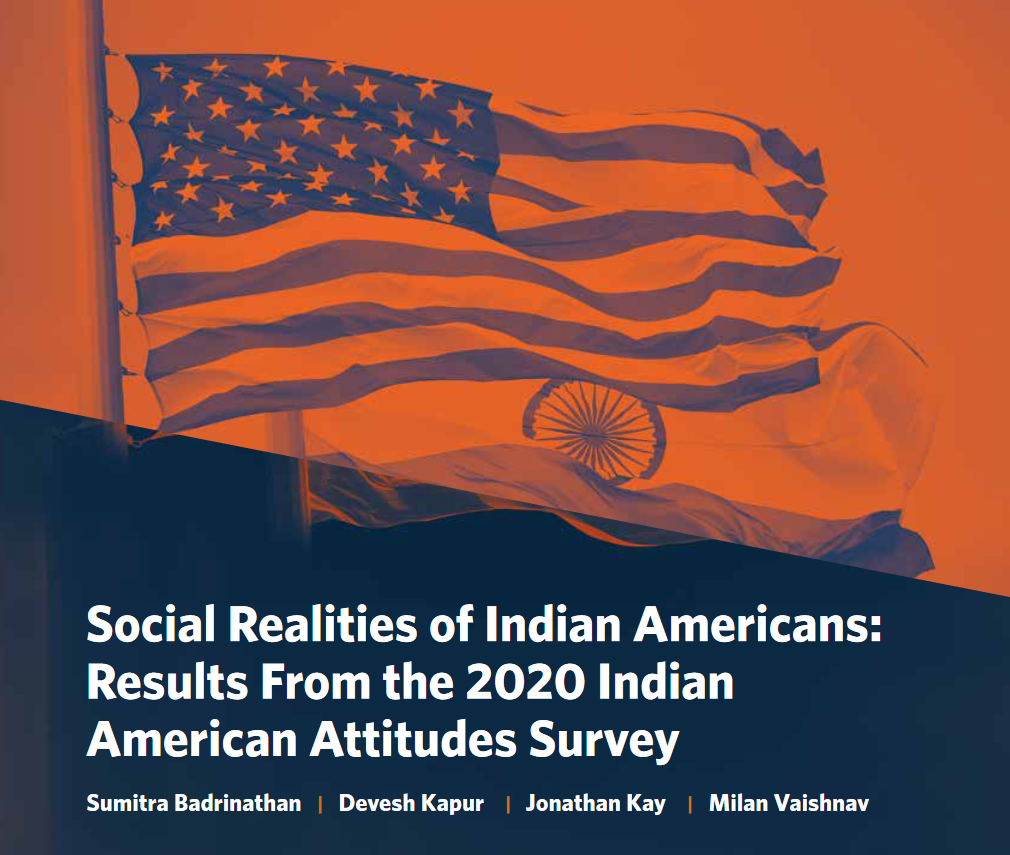 Social Realities of Indian Americans: Results From the 2020 Indian American Attitudes Survey
Social Realities of Indian Americans: Results From the 2020 Indian American Attitudes Survey
Sumitra Badrinathan, Devesh Kapur, Jonathan Kay, and Milan Vaishnav
Carnegie Endownment for International Peace, SAIS Johns Hopkins, University of Pennsylvania
June 2021
Media coverage:
Sumitra Badrinathan, Devesh Kapur, and Jonathan Kay on How Indian Americans Live
Grand Tamasha podcast, June 9, 2021
How Do Indian Americans View India?: Results From the 2020 Indian American Attitudes Survey
Sumitra Badrinathan, Devesh Kapur, and Milan Vaishnav
Carnegie Endownment for International Peace, SAIS Johns Hopkins, University of Pennsylvania
February 2021
On India, a Fracture in the Diaspora
Sumitra Badrinathan, Devesh Kapur, and Milan Vaishnav, Hindustan Times, February 10, 2021
Sumitra Badrinathan and Devesh Kapur on How Indian Americans View India
Grand Tamasha (podcast), February 9, 2021
Media coverage:
Survey Shows Indian Americans Split Over Direction India Headed
Sanjeev Miglani, Reuters, February 9, 2021
A Permanent Cordon Sanitaire: Intra-Village Spatial Segregation and Social Distance in India
Naveen Bharathi, Deepak Malghan, and Andaleeb Rahman
Contemporary South Asia, December 15, 2020
A Permanent Cordon-Sanitaire: Dalits and Muslims in Urban India
Naveen Bharathi, Deepak Malghan, and Andaleeb Rahman, Ideas for India, October 9, 2020
Diversity Deficit and Scale-Flip
Naveen Bharathi, Deepak Malghan, Sumit Mishra, and Andaleeb Rahman
The Journal of Development Studies, August 26, 2020
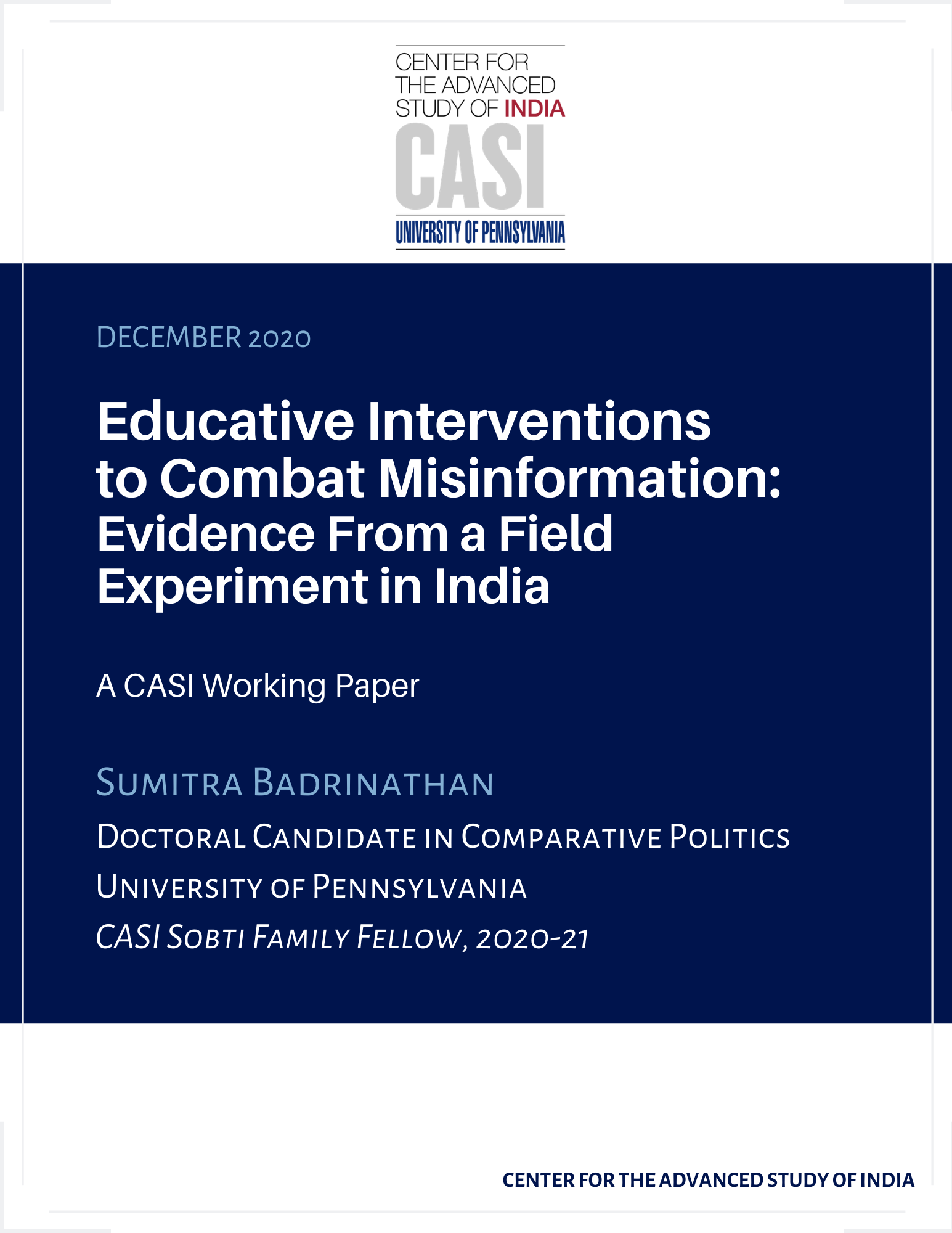 Educative Interventions to Combat Misinformation: Evidence From a Field Experiment in India
Educative Interventions to Combat Misinformation: Evidence From a Field Experiment in India
Sumitra Badrinathan
CASI Working Paper, December 2020
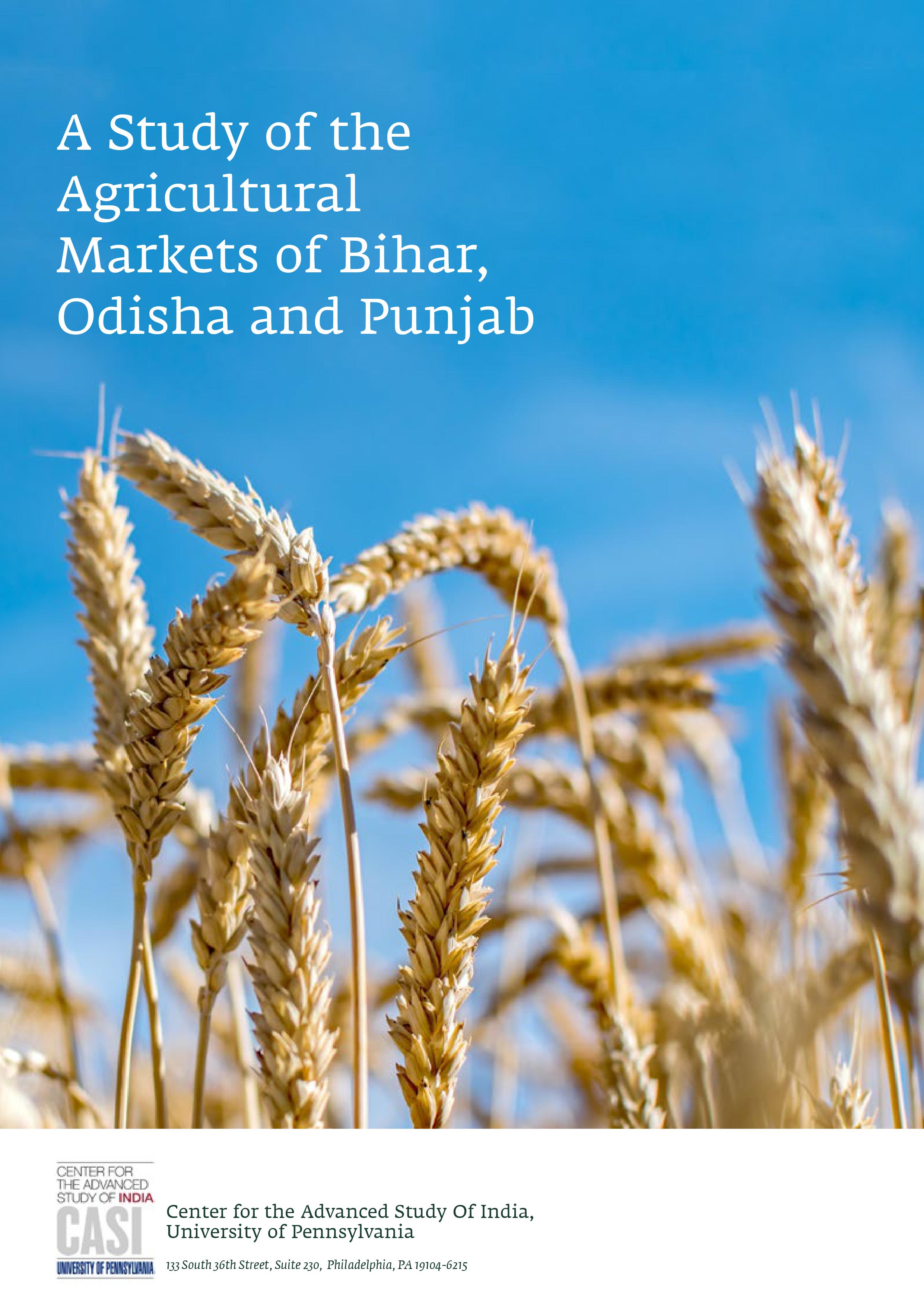 A Study of the Agricultural Markets of Bihar, Odisha, and Punjab
A Study of the Agricultural Markets of Bihar, Odisha, and Punjab
Shoumitro Chatterjee, Mekhala Krishnamurthy, Devesh Kapur, and Marshall M. Bouton
in partnership with the Bill & Melinda Gates Foundation
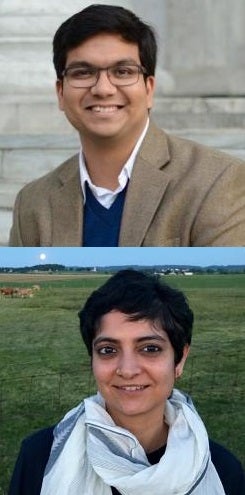
Farm Bills: First Principles and the Political Economy of Agricultural Market Regulation
Shoumitro Chatterjee & Mekhala Krishnamurthy, Ideas for India, October 16, 2020
India’s Inward (Re)Turn: Is it Warranted? Will it Work?
Shoumitro Chatterjee & Arvind Subramanian, Policy Paper No. 1, Ashoka Centre for Economic Policy, October 2020
India’s Export-Led Growth: Exemplar and Exception
Shoumitro Chatterjee & Arvind Subramanian, Working Paper No. 1, Ashoka Centre for Economic Policy, October 2020
To Embrace Atmanirbharta is to Choose to Condemn Indian Economy to Mediocrity
Shoumitro Chatterjee & Arvind Subramanian, The Indian Express, October 15, 2020
India’s Export Opportunities Could Be Significant Even in a Post-COVID World
Shoumitro Chatterjee & Arvind Subramanian, The Indian Express, October 14, 2020
Congratulations to Shoumitro Chatterjee—winner of the 2019 Exim Bank International Economic Research Annual (IERA) Award for his thesis "Essays in Trade and Development Economics."
How Will Indian Americans Vote?: Results From the 2020 Indian American Attitudes Survey
Sumitra Badrinathan, Devesh Kapur, and Milan Vaishnav
Carnegie Endownment for International Peace, SAIS Johns Hopkins, University of Pennsylvania
October 2020
72% Indian-Americans Will Vote For Joe Biden: US Survey (Video)
Sumitra Badrinathan, Devesh Kapur, and Milan Vaishnav, NDTV, October 15, 2020
Why Indian Americans are Not Becoming Republicans Any Time Soon
Sumitra Badrinathan, Devesh Kapur, and Milan Vaishnav, The Washington Post, October 15, 2020
Indian-Americans are with Democrats
Sumitra Badrinathan, Devesh Kapur and Milan Vaishnav, Hindustan Times, October 15, 2020
Indian-American Politics: Where Do Their Loyalties Lie in 2020?
Carnegie Endowment, October 14, 2020
Sumitra Badrinathan and Devesh Kapur Decode the 2020 Indian American Vote
Grand Tamasha (podcast), October 14, 2020
Media coverage:
Indian-Americans Overwhelmingly Support Joe Biden, New Poll Shows
Emily Schmall, The New York Times, October 14, 2020
Indian Americans Solidly Behind Biden in U.S. Presidential Election, Survey Shows
Sanjeev Miglani, Reuters, October 14, 2020
Survey Shows Biden Has Overwhelming Support of Indian Americans
Fadel Allassan, Axios, October 14, 2020
 Systematizing and Upscaling Urban Climate Change Mitigation
Systematizing and Upscaling Urban Climate Change Mitigation
Radhika Khosla, Felix Creutzig, Xuemei Bai, Vincent Viguie, and Yoshiki Yamagata, Environmental Research Letters, September 17, 2020
Superimposition: How Indian City Bureaucracies are Responding to Climate Change
Radhika Khosla & Ankit Bhardwaj, Environment and Planning E: Nature and Space, August 25, 2020
Illuminating Homes with LEDs in India: Rapid Market Creation Towards Low-Carbon Technology Transition in a Developing Country
Radhika Khosla, Ajinkya Shrish Kamat, Venkatesh Narayanamurti, Energy Research & Social Science, August 2020
 Is the Managed Retreat Plan for the Sundarbans Misguided?
Is the Managed Retreat Plan for the Sundarbans Misguided?
Debjani Bhattacharyya & Megnaa Mehtta, The Diplomat, September 5, 2020
More Than Rising Water: Living Tenuously in the Sundarbans
Debjani Bhattacharyya & Megnaa Mehtta, The Diplomat, August 29, 2020

